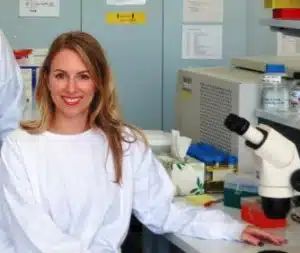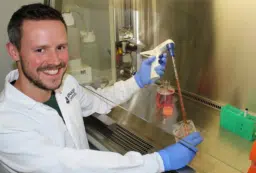A new vaccine strategy may help prevent herpes and HIV by stopping them at their point of entry, a Melbourne scientist has found.
Dr Laura Mackay, of The University of Melbourne, has successfully blocked herpes infection after targeting a novel population of T cells in the skin
“Until now, vaccine trials have focused on boosting the immune system’s antibodies or disease-fighting T cells in the blood. We have identified a novel population of T cells that reside in tissues such as the skin, and have found that it is these cells that are key to protecting against infection,” says Laura.
“Our vaccine strategy involves conventional vaccination to boost T cells in the blood, in combination with a topical stimulus such as a cream, which draws cells into the tissue like a magnet. This means the T cells are in the right place at the right time, ready to fight infection at the site of viral entry,” she says.
Current vaccination programs provide no protection against HIV, which infects 42 million people worldwide, highlighting the need to find new and more effective therapies that can provide a cure for these infections.
Laura says her discovery has the potential to transform vaccine design. “For instance, sexually-transmitted infections such as HIV will be better controlled by targeting T cells to the reproductive organs, and flu infection by targeting T cells to the lung,” she says.





 Fresh Science is on hold for 2022. We will be back in 2023.
Fresh Science is on hold for 2022. We will be back in 2023.